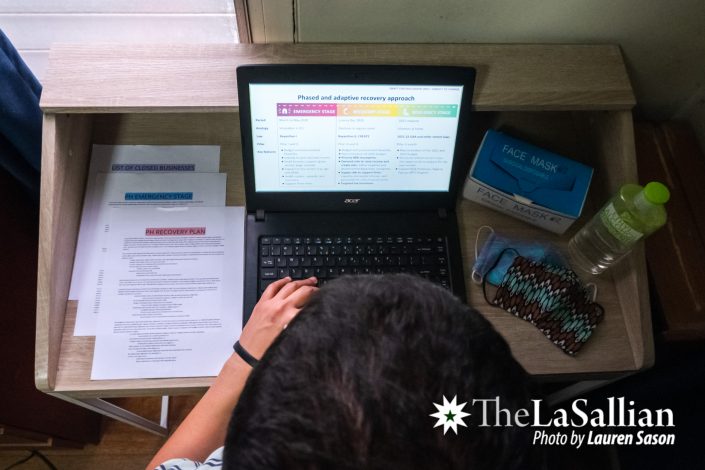The Department of Finance (DOF), in collaboration with the National Economic Development Authority (NEDA), hosted the first online installment of Sulong Pilipinas: Youth Partners for Progress last May 14. In the annual consultative conference, youth participants were tasked with formulating effective policy recommendations that focus on addressing the impact of COVID-19 on the country.
During the event, Acting NEDA Secretary Karl Chua presented the details of the economic recovery plan of the country—giving the conference’s participants the opportunity to assess the economic chief’s proposal.
Dubbed as the Philippines Program for Recovery with Equity and Solidarity, the plan consists of subsidies for low-income households, support for businesses, job creation, targeted tax incentives, and other reforms, spread throughout a time frame that began last March and is set to continue beyond 2021.
Recovery and resiliency
Projects for the Philippines’ economic comeback are set to begin implementation this June under what Chua termed as the “recovery stage”—the second phase of the government’s three-part approach, which had begun with the ongoing “emergency stage” or immediate crisis response. The effects of recovery will then be sustained in the final chapter of the socioeconomic strategy, the “resiliency phase”, which Chua said is still in preparation.
In this regard, NEDA aims to simultaneously encourage spending among consumers and offer capital support to businesses through Bayanihan II, the planned second tranche of the Bayanihan to Heal as One Act. “The priority really here is to restore income and jobs of consumers,” Chua remarked.
This, he said, involves assuring people of the safety of outdoor economic activity by improving the health system’s capacity and restoring their access to basic needs by prioritizing the food value chain. These will also generate employment, along with the resumption of the “most impactful” ventures of the administration’s Build, Build, Build (BBB) program, he added.
Various measures are also being considered to provide cash assistance to businesses. Aside from providing them liquidity under Bayanihan II, the administration plans an across-the-board tax cut from 30 to 25 percent by July under the proposed Corporate Recovery and Tax Incentives for Enterprises Act, which hopes to incentivize existing and potential investments.
With the need for financial resources, NEDA is also looking into the prioritization of “new normal concerns”, such as health, BBB, and agriculture, in the 2021 national budget.

Economic difficulty
Finance Secretary Carlos Dominguez III began his discussion by illustrating the effect of the COVID-19 pandemic on the economy, citing that the Philippines’ Gross Domestic Product (GDP) “shrank by 0.2 percent in the first quarter of 2020.”
Nevertheless, experts from the World Bank and Yale University advised the DOF not to dwell on the country’s quarterly GDP performance, he revealed. The administration’s “approach to fiscal management” has reportedly placed the Philippines in a position to withstand the impact of COVID-19.
The Finance Secretary also expressed his satisfaction with the country’s credit rating of BBB+, which is regarded as “the highest in [Philippine] history”. The record-high credit rating, Dominguez said, signifies the trust and confidence of development partners, such as the Asian Development Bank and The World Bank, who have permitted the government to borrow money at lower interest rates and longer repayment periods.
Apart from aid provided by international organizations, Dominguez noted that the passage of the Tax Reform for Acceleration and Inclusion Law and the Sin Tax Reform Law gave the country the “fiscal space” necessary to fund programs to overcome the crises brought by the COVID-19 pandemic. The Department of Social Welfare and Development’s Social Amelioration Program was implemented using the tax revenue gained from prior economic reforms.
Leading ideas
Sulong Pilipinas participants formulated recommendations to address the crisis, including boosting telecommunications services to help prepare for remote learning; incorporating relevant socioeconomic information in the National ID System by 2021; and increasing COVID-19 testing capacity.
“We believe that these are the most important measures that the government should take, to ensure the Philippines recovers from COVID-19 as quickly and efficiently as possible,” Ronin Leviste, University Student Government Vice President for External Affairs, affirmed. “Change will not come if we wait for someone else or if we wait for some other time.”
Finance Assistant Secretary Tony Lambino assured participants that the top recommendations will be presented to the President and to the relevant government agencies. “We take your recommendations very seriously. After all, it is your generation that will benefit in the long-term should we succeed in our current efforts,” he said.
